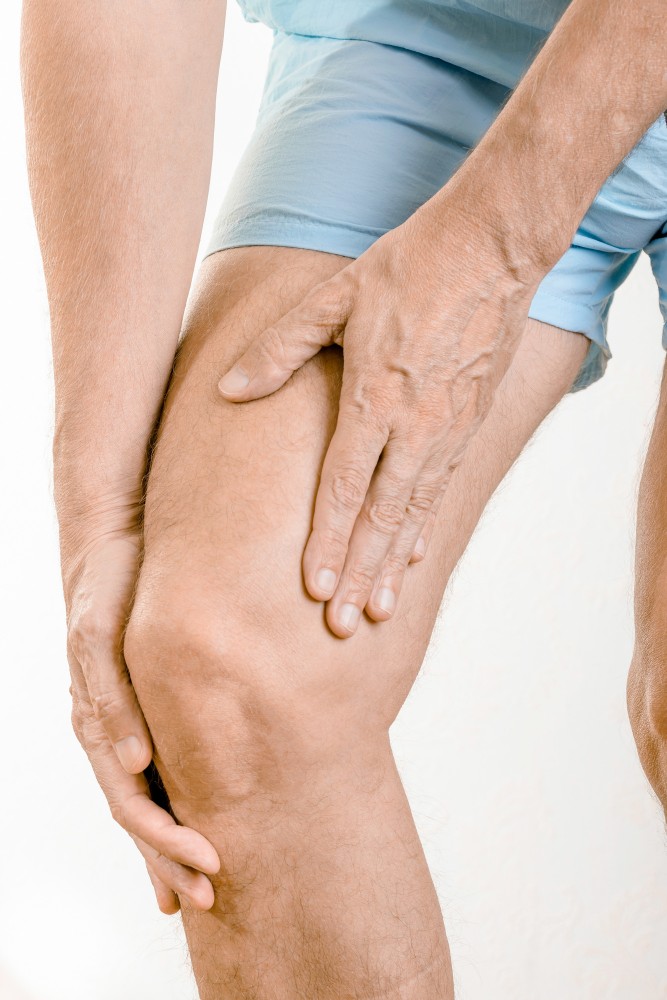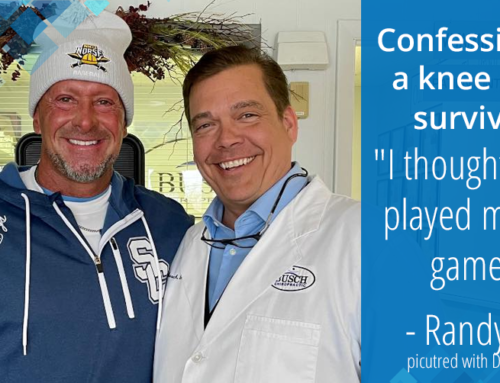Each year approximately 850,000 individuals in the U.S. suffer a meniscus tear. In fact, a torn meniscus is one of the most common types of knee injuries that occur. To help you avoid this painful injury, we’re sharing 5 of the most common causes of a meniscus tear. But first, what exactly is a meniscus?
What is a Meniscus?
Each of your knees has two menisci. These are pieces of cartilage, in the shape of a C that serves as a cushion between your thighbone and shinbone.
If you happen to tear the meniscus, it can result in stiffness, swelling, and pain. You may also have trouble fully extending your knee.
A torn meniscus can be very painful and any type of activity that results in you forcefully rotating or twisting your knee, especially while putting all your weight on it, could result in injury. Keep reading to learn about some of the most common causes of a meniscus tear and what you can do to prevent it.
While those who play sports may be the most at risk of tearing their meniscus, it can happen to anyone, especially as we age.
What Causes a Meniscus Tear?
1. Unexpected or Quick Force
If you experience an unexpected or sudden force that results in your knee joint flexing too far back, it could result in a torn meniscus. A classic example of how this occurs is if you play basketball. It could happen if your leg hits another basketball player while you are landing after a rebound.
2. Rapid Squatting or Stepping on Uneven Surfaces
If you are on an uneven surface, squatting or stepping at a quick pace, then it can lead to a disproportionate amount of force on your knees. Over time, this could lead to ruptures or tears of the meniscus. This commonly occurs in people who trail run for cross country, those who fall in an awkward position while playing lacrosse or running during football drills.
Kneeling and squatting wrong during yoga or other forms of exercise could lead to injury as well.
3. Over Rotation of the Knee
If you plant or cut your leg in an overly aggressive manner, this can cause a tear in either of the menisci. This pivoting often occurs in sports such as football, basketball, and soccer.
4. Age-Related Injury
Due to wear and tear and degeneration, older adults suffer an increased risk of a knee injury. A simple slip and fall, bending wrong, or stumbling could lead to a torn meniscus.
5. Lifting Something that’s too Heavy
If you attempt to lift something that is extremely heavy, you may also suffer a torn meniscus.
How to Prevent a Meniscus Tear
One of the best ways to prevent a meniscus tear is by performing specific exercises that will strengthen the muscles in your leg. This can help to stabilize the knee joint and protect it from any type of injury.
You can also use protective gear while playing sports, or a brace that will support your knee during certain activities. Some other tips that may prove beneficial include:
- Stretch and warm-up before exercising
- Always use the right gear and shoes for your activity
- Lace your shoes properly
- Learn and use the proper techniques for any activity
Meniscus Tear Treatment
If you do suffer a meniscus tear don’t worry about having to go under the knife. Non-surgical treatment options are an effective way to treat a meniscus tear without surgery or painful shots.
The Busch Stem Cell Stimulation Protocol offered only at Busch Chiropractic in Fort Wayne has helped people avoid the risks and lengthy recovery time of surgery. It’s a successful alternative to knee surgery for many of the common causes of a meniscus tear that combines cold laser therapy with multiple other therapies to reduce inflammation, alleviate pain, and increase mobility while promoting tissue repair and new cell growth.
Meniscus Tears: Now You Know
While meniscus tears are extremely common, especially in individuals who play sports and exercise and in aging adults, there are steps you can take to prevent them. Be sure to be aware of what causes the injury, and what you can do to prevent it by reviewing and using the information here.
If you are worried that you have injured your knee in some way, contact us for an appointment today to find out more about our nonsurgical treatment for a meniscus tear.





